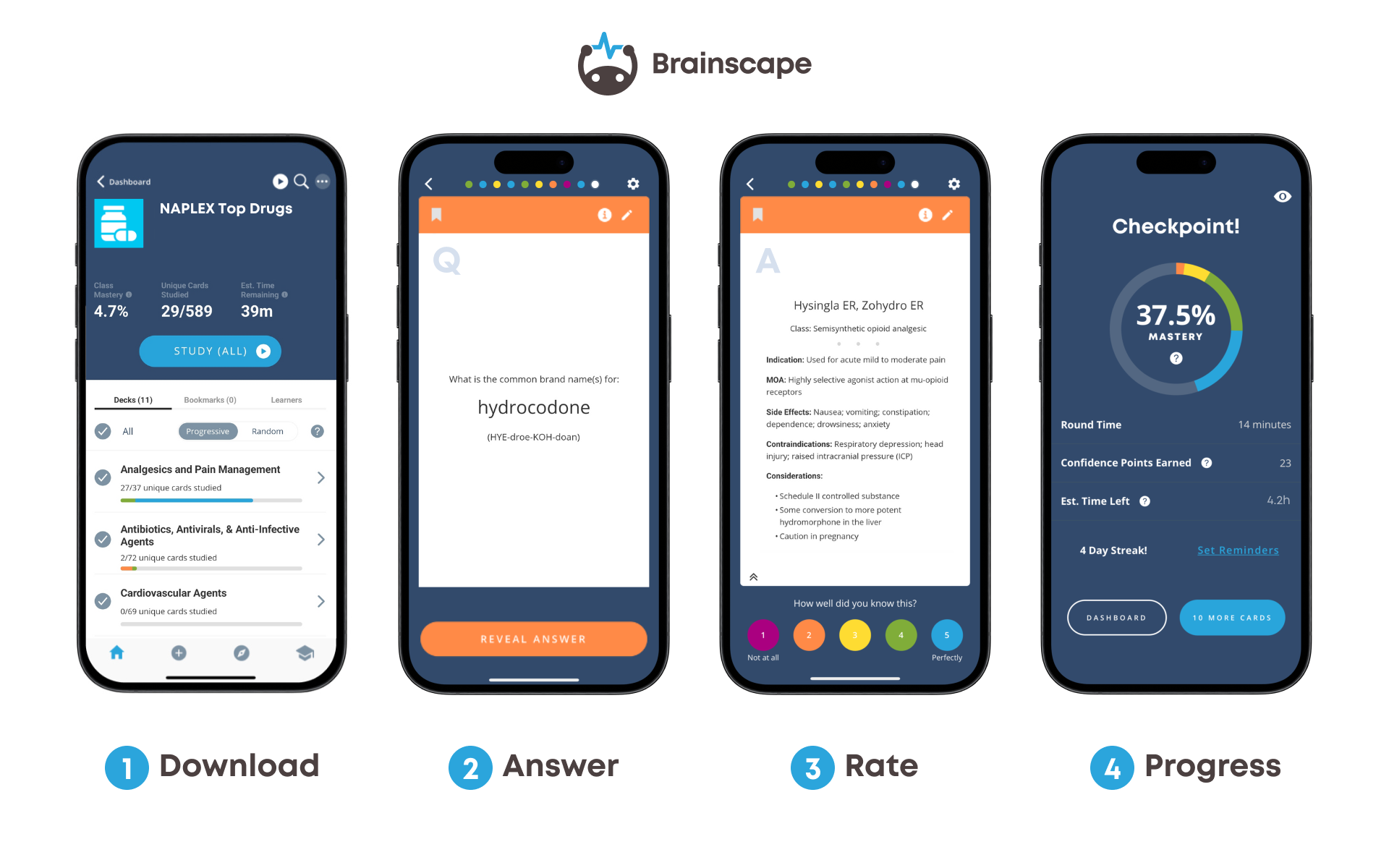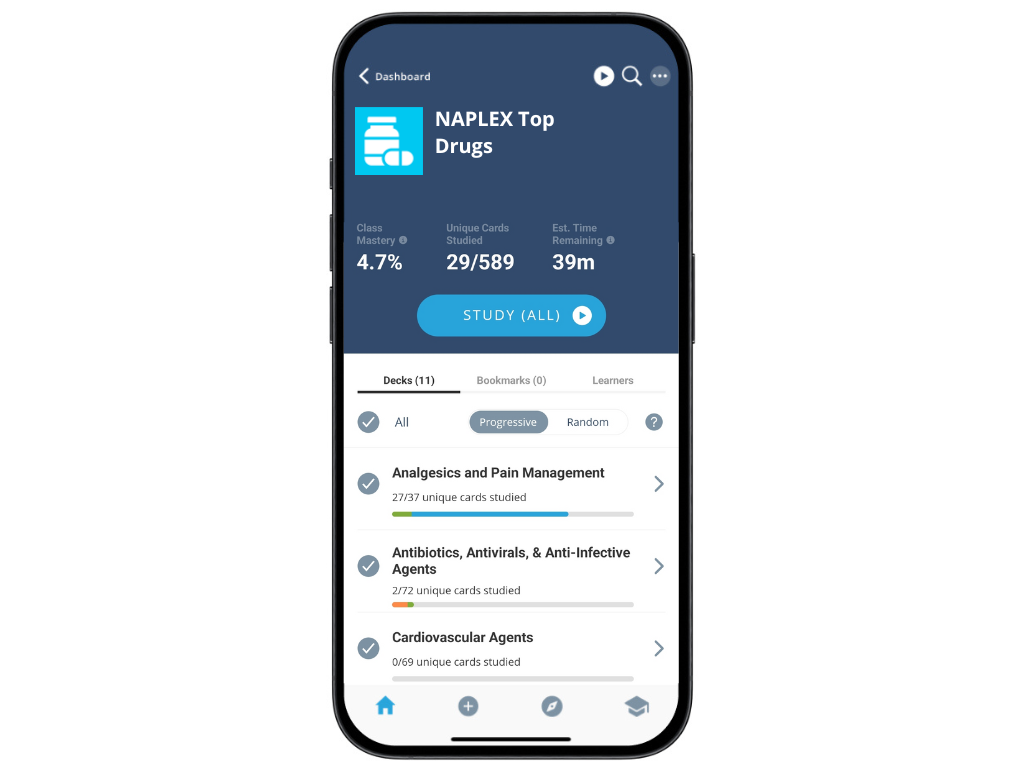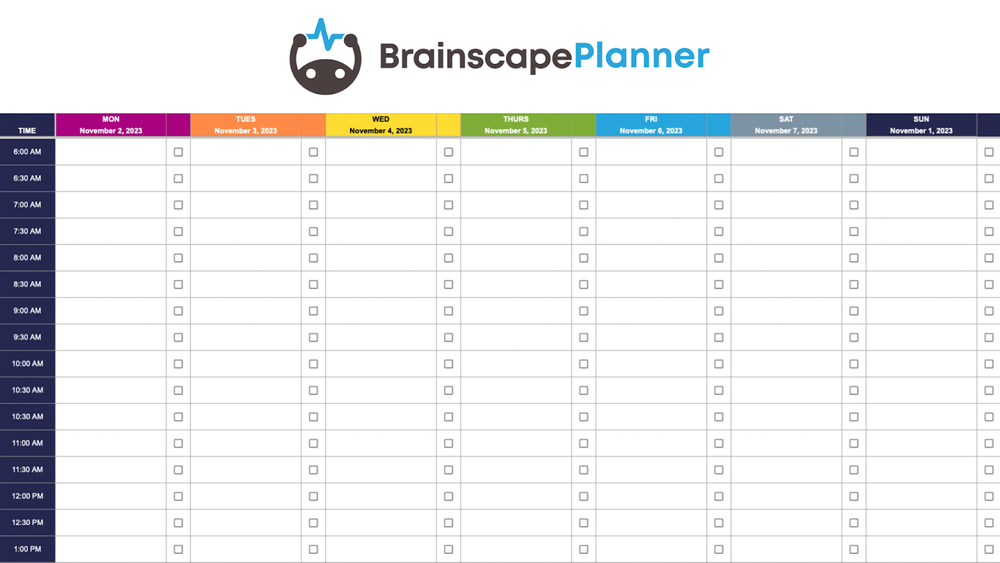The NAPLEX is the final boss in the video game of pharmacy school. It’s the last obstacle between pharmacy students and the professional life you’ve been grinding toward for years: that future where you get to finally put all that knowledge to practical use.
And yes, sometimes that means helping someone pick the right stool softener. But more often, it means being the calming expert in the chaos. Pharmacy graduates know exactly how to counsel a nervous parent, dose a life-saving med, or catch a drug interaction that even the prescriber missed. This is important work.
So if you’re feeling nervous, good. That means you care. And the great news is, you can crush this exam! With the right advice, a steady mindset, and a powerful study weapon to master all that drug knowledge as efficiently and painlessly as possible (which we’ll talk about soon), you'll be well on your way to embarking upon your career as a licensed pharmacist.
This article will walk pharmacy students through how to study for the NAPLEX exam, how to know when you’re ready, and how to retain what you learn. We'll also explore the fundamental study tools and other resources you'll need to pass this exam (and any future exams you might face).
So, if this is your graduation year, this is the study guide that'll get you to the finish line.
What's the Best Way to Study For NAPLEX Success?
With 225 questions, the North American Pharmacist Licensure Examination covers a lot of ground. But here’s the good news: you don’t need to get 100% correct answers. It's a minimum competency exam, so it requires you to exceed a scaled score of 75.
You do, however, need to know the most commonly prescribed medications, mechanisms of action, infectious diseases, side effects, contraindications, black box warnings, common drug interactions, and math. As such, a good NAPLEX study plan typically includes:
- A thorough review of all the clinical content knowledge
- A metric ton of exam questions (and answers so that you can identify your weaknesses)
- Studying using active recall learning tactics (not just passive reading)
- Targeted review of math calculation questions
- Simulated practice exams
- Time for self-care, which includes good exercise, sleep, and nutrition, so that your brain can operate optimally.
Your NAPLEX study schedule doesn’t need to look like a math PhD. But it does need to be consistent. Typically, you should start studying for 3–5 hours per day for at least 6–8 weeks. Any less and you’re cramming. Any more and you’re probably spiraling.
Choose your exam date, book in a testing site, then plan backward from there. (Oh, and as you're putting this schedule together, make use of our helpful study planners and exam countdown templates. They're free and totally customizable.)
And don’t fall for the “I’ll just read the RxPrep book cover to cover” trap. That book is a beast. It’s a great resource, yes, but trying to memorize it like a bedtime story is a one-way ticket to burnout. You need to systematically ingrain the knowledge as you progress through your materials. (More on how you can do that in a bit...)
Instead, break your days into focused chunks. For example:
- 1 hour of clinical review
- 1 hour of calculations practice
- 1 hour of flashcard review
- 1 hour of practice questions
- 30 minutes of cry-laughing while watching pharmacy TikToks
(Side note: That last one’s optional. But deeply healing.)
How Should I Incorporate NAPLEX Practice Tests and Simulations?
It’s one thing to sit down and stare at your textbook. It’s another thing to actually know if your brain is absorbing anything… besides the caffeine you’re throwing back harder than beer at a college party.

Practice exams tell you the truth.
The Pre-NAPLEX is a good place to start. It’s a 100-question test released by the National Association of Boards of Pharmacy (NABP), made up of real (retired) NAPLEX questions. You can only take it twice, and it’s not cheap, but it gives you helpful information on how you’d score on the real NAPLEX. Think of it as your clinical reality check. The ultimate way to prepare.
Beyond that, make sure you’re regularly taking full-length practice tests under timed conditions. Set a timer, close your notes, and go. The goal is to simulate the real test-day experience, complete with numb buttocks and existential dread.
Each time you take a practice test, track your scores across the different topic areas. Are you bombing oncology questions? Still confused about renal dose adjustments? Can’t remember how to calculate mEq from mg? Next question, please!
This is your signal to double down.
At the same time, do not ignore the questions you get right. Review those too. Because sometimes you guess. And sometimes you get lucky. Either way, luck is not a viable NAPLEX strategy.
Now let’s talk about mental prep for a second. On the day of the test, your job isn’t to feel perfectly prepared. Your job is to be reasonably calm, reasonably rested, and equipped with enough knowledge to face whatever the NAPLEX gods throw at you.
Bring your ID. Bring your appointment confirmation. Eat a real breakfast. And remind yourself: You’ve done the work. You belong here. Worst-case scenario? You get a question on some obscure details you’ve never seen before. That's fine! You can get a question wrong (or several) and still pass the NAPLEX.
Now let’s talk about the fastest way to deeply ingrain all of the essential drugs knowledge you’re likely to come across on the NAPLEX.
Your Secret Study Weapon: Digital NAPLEX Flashcards

Your brain forgets things. Constantly. It’s not your fault. It’s biology. But it means that just reading notes or watching review videos isn’t enough.
What you need is to use study tactics that exercise your powers of active recall and apply them on a spaced repetition schedule. (This is the science behind how our brains were designed to remember information: through repetition and through perceived importance.)
You need to be forced repeatedly to pull information out of your brain, from scratch. That’s how long-term memory is built. It’s how we go from “I think lisinopril does something with the kidneys?” to “ACE inhibitors decrease angiotensin II and cause vasodilation, which reduces blood pressure, and yes, they can cause hyperkalemia. Final answer.”
This is where an adaptive flashcard app like Brainscape comes in.

Based on decades of cognitive science research, Brainscape’s NAPLEX flashcards are an expert-curated and vetted study system that systematically drills you on the high-yield drug knowledge you need for exam day.
Each flashcard in Brainscape’s system uses spaced repetition to keep resurfacing the NAPLEX concepts you almost know but are on the verge of forgetting. You rate your confidence after each card. Then the algorithm prioritizes the concepts you struggle with most. Over time, this laser focus helps you master the essential drugs tested in the NAPLEX while spending less time on the ones you’ve already nailed.
The result? Learning TWICE as fast. And passing the exam.
Here’s what else you get:
- A fully mobile-friendly app so you can study anywhere, anytime: on rounds, between patients, in the bathroom during a 12-hour shift.
- Synced progress across mobile and desktop, so you can pick up right where you left off and start studying as quickly and as painlessly as humanly possible.
- Built-in progress tracking, so you know exactly what percentage of the content you've mastered and how much time you have left until you're ready to take the exam.
- Fully flexible learning that adapts to your own study schedule. Helpful, right?
And if you're thinking, “That sounds great, but I’ve already started making my own flashcards,” that's great. But here’s the thing: your time is precious. And Brainscape's flashcards are created by experts who have already done all the work of distilling down the essential drugs you need to know. Why waste hours reinventing the wheel (or worse, accidentally reinforcing wrong info)?
Brainscape is the ultimate study weapon to lock in your weak areas, retain key drug knowledge, and cut your study time significantly.
Don’t just hope for a good score. Train for it. Fight for it. Flashcard your way to glory and pass the NAPLEX on your first attempt.
Frequently Asked Questions
How Should I Create a NAPLEX Study Schedule?
Begin your NAPLEX prep about 6–8 weeks before your test date. Plan for 3–5 hours of study time each day, broken into focused blocks that target different skills: practice questions, flashcard review, clinical content, and pharmacy math calculations. Use a calendar or study planner (see a sample of Brainscape's free ones below) to map out your daily goals and weekly milestones. Aim to review high-yield topics first, then cycle back to weaker areas using active recall and spaced repetition. Include full-length practice exams every 1–2 weeks to track progress. And don’t forget rest days! Sustainable consistency is more effective than burnout-inducing marathons.

What is the Pre-NAPLEX?
The Pre-NAPLEX is a 100-question timed practice test from NABP using real retired questions. It's an important part of how you prepare for the real NAPLEX because it allows you to determine your strengths and weaknesses (and therefore what you should be focusing your review on), while also getting a feel for how the NAPLEX assesses your pharmacy knowledge.
How Can I Manage Test-Day Stress?
Start the night before! Pack your ID and test confirmation, lay out your outfit, prepare your breakfast and snacks plan, and set multiple alarms. Aim for at least 8 hours of sleep. Even if you’re restless, lying down helps your brain rest. Eat a balanced breakfast with protein and complex carbs, and arrive early to give yourself plenty of time to adjust to the test center.
Once you’re there, remind yourself that you’ve done the work! Remember every day of practice exams, flashcards, and clinical review. You’ve put in the hours. You are prepared. If panic creeps in, acknowledge the emotion neutrally, without judgment. For example, you could tell yourself: “I’m nervous because this matters to me.” Then remind yourself again of the mammoth job you’ve done in preparing for this exam.
What Are Tips for Passing NAPLEX on the First Attempt?
Start studying early, focus on your weak areas, master calculations, and take full-length practice exams like the Pre-NAPLEX. Confidence comes from being prepared. Study content knowledge more efficiently with digital flashcards, like Brainscape.
How is the NAPLEX Exam Administered?
It’s a computer-based test at a Pearson VUE testing center. Bring your ID, follow instructions, and show them what you learned in pharmacy school! The National Boards of Pharmacy has a thorough guide to NAPLEX test day information.
When Should I Start Studying For The NAPLEX Exam?
As soon as your finals are behind you, you should start to prepare to take the NAPLEX. The earlier you do, the more confident you’ll feel walking into the test center. A typical NAPLEX study schedule requires at least 6-8 weeks of 3-5 hours per day.
Final Thoughts on How to Study For NAPLEX Exam Success
The NAPLEX asks for your competence, confidence, and a deep command of the knowledge you’ll use every day as a pharmacist. You’re about to become a human chemical dispenser. That means knowing your meds, understanding their impact, and taking that responsibility seriously. It’s about investing time every day into studying smarter with flashcards, practicing math, reviewing clinical chapters, and preparing for residency interviews, even when you’d rather be sitting back with a coffee and the latest reading list from your journal club.
The best study method is one that empowers you to learn as efficiently as possible, as painlessly and sustainably as possible. Practice tests keep you honest. Flashcards keep you sharp. And Brainscape? We’re your ride-or-die study buddy. The one who doesn’t let you skip exam prep even though you might really want to.
So, if you're ready, let’s turn “aspiring pharmacist” into just “pharmacist”!
If you loved this article, you might also love...
